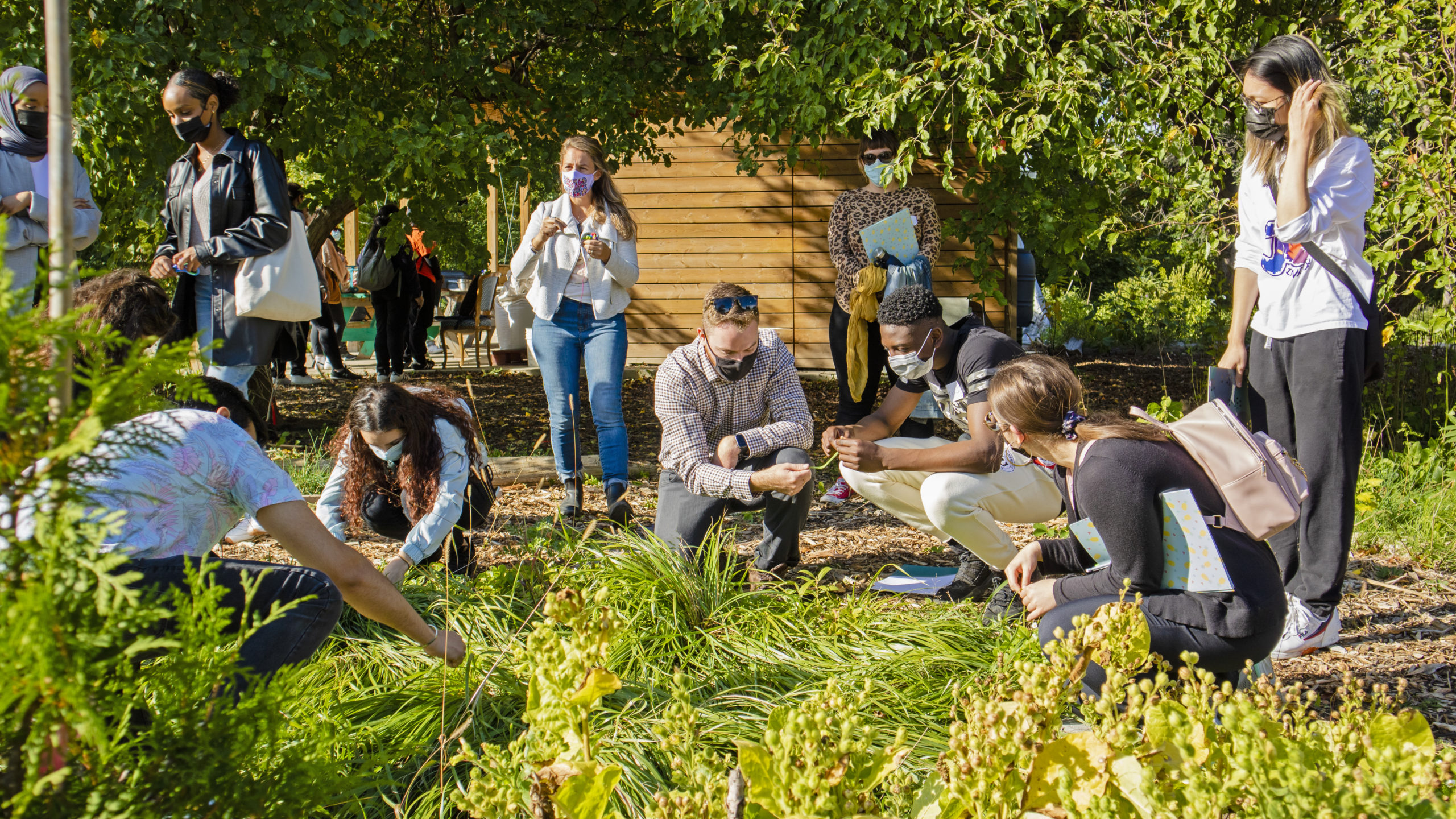Land-based learning is not simply going out into nature and observing or picking about and taking notes, it is learning through Indigenous teachings and methodologies and acknowledging that the land we are currently on is connected on a spiritual level to all living things. It is a formed and sentient being that educates us and also provides for us. Further, it is acknowledging that we are on colonized land, the result of which has been the attempt at erasure of traditional Indigenous pedagogies and ontologies, as education and learning are also deeply rooted within the land in Indigenous practices.
Ruth Koleszar-Green (Kanien’kehá:ka/ Mohawk and Celt) of the school of social work at York said it best in York’s Understanding the Land Acknowledgement video: “This is a settler institution occupying Indigenous land. The fact that Indigenous communities have thrived in this territory since time immemorial needs to be acknowledged.”
With that in mind, Jessica Vorstermans decided to include land-based experiential learning within the Faculty of Health, through courses taught by Sean Hillier and herself, and by fostering a partnership between Joce Two-Crows and Jennifer LaFontaine at the Sweet Grass Roots Collective at Black Creek Farms.
Vorstermans, an assistant professor of critical disabilities studies and health policy & equity, developed the program because “students have been asking for Indigenous-based programs and courses, like the need for a first-year Indigenous Health course, and as an institution we need to be responding to that. Students need to know where they can go and request courses and programs like this, and as an institution, it’s our responsibility to educate our students, especially in these areas, and to acknowledge our positionality with that system and our responsibilities, especially in terms of reciprocity.”
Koleszar-Green also stated in the video that “land acknowledgements are relational to who we are and the land we are on. It is important that non-indigenous people reflect and understand their responsibilities to this as well.”
This is a primary concern of land-based learning and its place within the health sector, as food and medicine come from the land, and the food we consume very much contributes to our health, both physical and mental. This is something that Joce Two-Crows touched on during York’s Faculty of Health’s video, Land Based Learning in the Faculty of Health, when they stated that manufactured food — particularly corn, which is incredibly prominent in our food structure — is not developed and harvested based on its nutritional value, but based on its abilities to handle the thousands of chemicals sprayed on them and for their transportability.
It is the aim that the inclusion of land-based learning can help decolonize health systems and others, such as food systems (as the two are inseparable from one another and Indigenous cultures themselves) and foster more abundant place-making spaces.
Hillier, an assistant professor & research chair in indigenous health policy & one health, and Vorstermans both point out that “the current health system is not providing real care, mentally or spiritually” and this is where understanding how concepts such as land-based learning are inherently tied to the health system is essential. Spirituality and health are not mutually exclusive concepts, and spirituality should not be a foreign concept to our healthcare system as it already has some bases in spirituality, “like when we see hospitals like St. Michael’s and the Catholic influence still present from colonization. That space then isn’t a welcome space for the Indigenous community, and isn’t open to everybody.” This is where place-making becomes essential.
Further, in order to avoid co-opting cultures and practices under the umbrella of education, “we need to build relationships, support the community, and not just enter a space and learn for a day and leave,” points out Hillier.
Partnerships and experiential learning programs such as these are essential in reforming more equitable health systems and policies, among many other institutional structures and systems that are inherent products of colonization. Place-making is essential to this process as is indigenization and learning directly from the source — the land.

